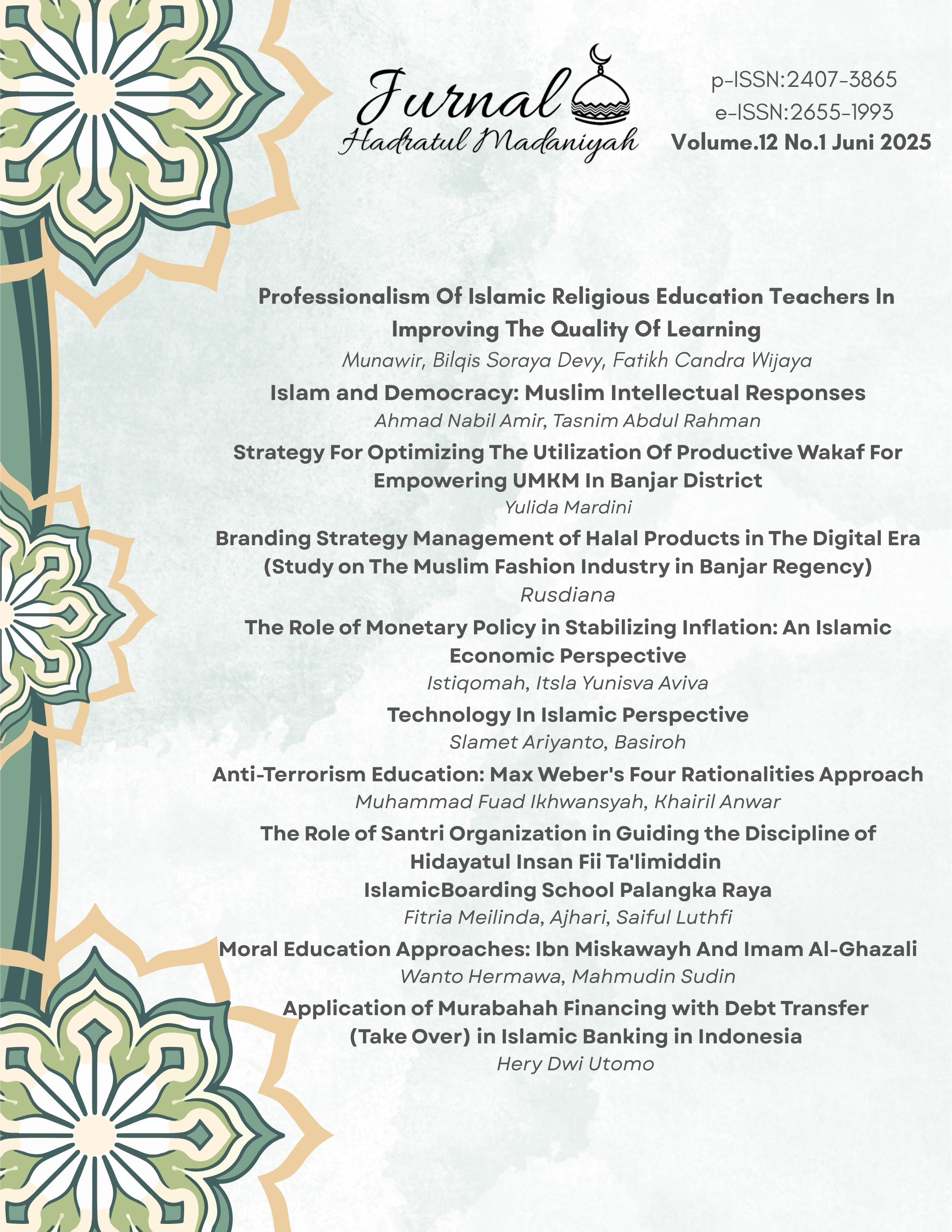Branding Strategy Management of Halal Products in The Digital Era (Study on The Muslim Fashion Industry in Banjar Regency)
Main Article Content
Abstract
The Muslim fashion industry in Indonesia, including in Banjar Regency, has experienced significant growth in recent years, especially in the digital era. Along with the increasing public awareness of halal products, the development of halal product brands in the Muslim fashion industry has become an important thing. This article aims to analyze the management of halal product branding strategies in the digital era, focusing on the Muslim fashion industry in Banjar Regency. Through a qualitative approach with case studies, this study identifies the branding strategies implemented by Muslim fashion industry players in Banjar Regency, the challenges faced, and how to utilize digital technology to increase competitiveness and market exposure. The results of the study indicate that strong brand management, effective communication through social media, and the use of the right digital platforms are the keys to success in branding halal products in the Muslim fashion industry. This study also provides recommendations for Muslim fashion business actors in optimizing branding strategy management in the digital era.
Downloads
Article Details

This work is licensed under a Creative Commons Attribution-ShareAlike 4.0 International License.
All rights reserved. This publication may be reproduced, stored in a retrieval system, or transmitted in any form or by any means, electronic, mechanical, photocopying, recording.
References
Ahmed, S. (2019). Building Trust in Halal Fashion Brands: Key Considerations for Marketers. Journal of Islamic Consumer Research, 6(2), 88-101.
Alam, A. (2020). Halal Fashion in the Global Market: Trends and Challenges. Journal of Islamic Fashion, 5(1), 22-34.
Amin, A. (2017). The Role of Waqf in Economic Empowerment in Islamic Context: Evidence from Indonesia. Islamic Economic Studies, 15(2), 53-70.
Amini, M., & Faizal, N. (2019). The Impact of Digital Marketing on Islamic Branding in Muslim Fashion Industry. Journal of Islamic Marketing, 8(3), 45-67.
BPS (2020). Statistik UMKM Indonesia 2020. Badan Pusat Statistik.
Hasan, S. (2018). The Growth of Halal Industry in Indonesia: A Strategic Perspective. Journal of Islamic Business, 4(1), 30-40.
Ibrahim, M. (2020). Branding and Digital Transformation: How Islamic Brands Thrive in a Digital World. Journal of Digital Innovation, 7(1), 12-25.
Ibrahim, M., & Sulaiman, M. (2018). Strategic Marketing and Branding for Muslim Fashion in the Digital Age. International Journal of Islamic Marketing, 9(2), 78-93.
Kahf, M. (2002). The Role of Islamic Banking in Economic Development. Islamic Economic Studies, 10(2), 45-68.
Kotler, P., & Keller, K. L. (2016). Marketing Management. Pearson Education.
Mulyadi, A., & Fikri, A. (2019). Optimalisasi Wakaf Produktif dalam Pemberdayaan Ekonomi Lokal di Indonesia. Jurnal Ekonomi Syariah, 9(1), 77-92.
Pereira, V., & Rodrigues, C. (2019). Digital Marketing and Brand Strategy: Challenges and Opportunities. Journal of Business and Technology, 3(4), 54-68.
Pioch, E., & Stojanovic, J. (2015). The Role of Digital Branding in the Modern Business Environment. Journal of Business Research, 19(2), 128-140.
Shah, I. (2014). Islamic Finance: A Practical Perspective. Cambridge University Press.
Yusof, S., & Ahmad, F. (2021). Challenges in Halal Fashion Branding and Marketing. Journal of Fashion and Marketing, 10(4), 142-158.
